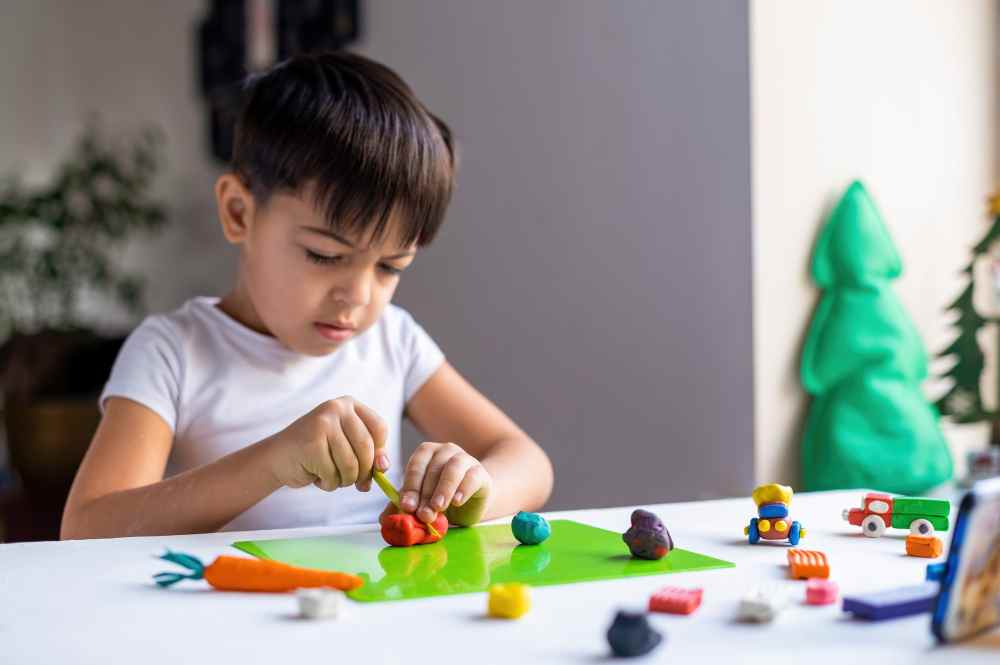Introduction:
The family environment plays a vital role in shaping a child’s academic performance and overall development.
As big kids enter elementary school, their educational journey becomes increasingly important.
In this article, we will explore the causal effects of the family environment on the academic performance of elementary school children.
Understanding these dynamics can help parents and caregivers create a supportive and nurturing home environment that fosters academic success.
Parental Involvement:
Active parental involvement is a significant factor in a child’s academic success.
Engaging in their education by attending parent-teacher meetings, monitoring homework, and establishing a routine for study and completion of assignments can positively impact a child’s academic performance.
Providing a supportive and encouraging environment at home sets the stage for success.
Emotional Support:
A nurturing and emotionally supportive family environment has a direct impact on a big kid’s academic performance.
Children who feel loved, valued, and emotionally secure are more likely to be motivated, confident, and engaged in their studies.
Encourage open communication, listen attentively to their concerns, and provide guidance and reassurance when needed.
Establishing a Learning-Friendly Home
Environment:
Creating a conducive learning environment at home is essential for big kids’ academic success.
Dedicate a quiet and organized study area where they can concentrate on their schoolwork.
Minimize distractions and establish consistent routines to help them develop good study habits.
Setting Clear Expectations and Goals:
Clearly communicate your expectations regarding your child’s academic performance.
Set realistic goals and help them understand the importance of education.
Encourage them to take responsibility for their learning and guide them in setting their own goals to foster a sense of ownership and motivation.
Providing Educational Resources:
Ensure access to educational resources such as books, age-appropriate educational apps,and online learning platforms.
Encourage reading, provide opportunities for exploration and discovery, and support their curiosity by engaging in educational activities together as a family.
Encouraging a Balanced Lifestyle:
A balanced lifestyle that includes adequate sleep, regular physical activity, and a nutritious diet contributes to a child’s cognitive abilities and overall academic performance.
Promote healthy habits, limit screen time, and encourage participation in extracurricular activities to enhance their holistic development.
Building a Partnership with the School:
Establish a positive and collaborative relationship with your child’s school and teachers.
Attend parent-teacher conferences, participate in school events, and stay informed about your child’s progress.
Communicate regularly with teachers to address any concerns or challenges that may arise.
Role Modeling and Value Education:
As a parent or caregiver, you serve as a role model for your child.
Demonstrate the value of education by expressing interest in learning, pursuing your own intellectual growth, and emphasizing the importance of lifelong learning.
Instill values such as perseverance, resilience, and a strong work ethic that will contribute to their academic success.
Addressing Emotional and Behavioral Challenges:
If your child is facing emotional or behavioral challenges that may impact their academic performance, seek professional support.
Consult with teachers, school counselors, or mental health professionals who can provide guidance and intervention strategies to address these issues effectively.
Celebrating Achievements and Encouraging Effort:
Acknowledge and celebrate your child’s achievements, both big and small.
Recognize their efforts and progress to boost their self-confidence and motivation.
Encouragement and positive reinforcement go a long way in nurturing their academic growth.
Conclusion:
The family environment has a significant influence on the academic performance of big kids.
By fostering a supportive, nurturing, and learning-friendly home environment, parents and caregivers can help their children thrive academically.
Active involvement, emotional supports, establishing a learning routine, setting clear expectations, providing educational resources, encouraging a balanced lifestyle,
building a partnership with the school, role modeling, addressing emotional and behavioral challenges, and celebrating achievements are all crucial elements in promoting academic success.
It is important to remember that every child is unique, and their needs may vary.
Pay attention to your child’s individual strengths, interests, and learning style.
Tailor your approach accordingly to provide them with the support and guidance they require to excel academically.
By prioritizing the causal effects of the family environment on the academic performance of elementary school children, parents and caregivers can create an environment that nurtures their child’s intellectual growth, fosters a love for learning, and sets them on a path to academic success.
Remember, your role as a parent or caregiver extends beyond academics.
Providing a loving and supportive environment, cultivating their overall well-being, and nurturing their emotional and social development will have a positive impact on their academic journey.
As you navigate this important phase of your child’s education, remember to seek guidance and support from teachers, school professionals, and other trusted resources.
By working together, you can create a strong foundation for your child’s educational success and empower them to reach their full potential.
In conclusion, the family environment plays a crucial role in influencing the academic performance of big kids.
By implementing the strategies discussed in this article, parents and caregivers can create a supportive and nurturing environment that fosters a love for learning, motivates their children, and sets them up for academic success.
Embrace the journey, adapt to your child’s unique needs, and celebrate their progress along the way.
![]()











